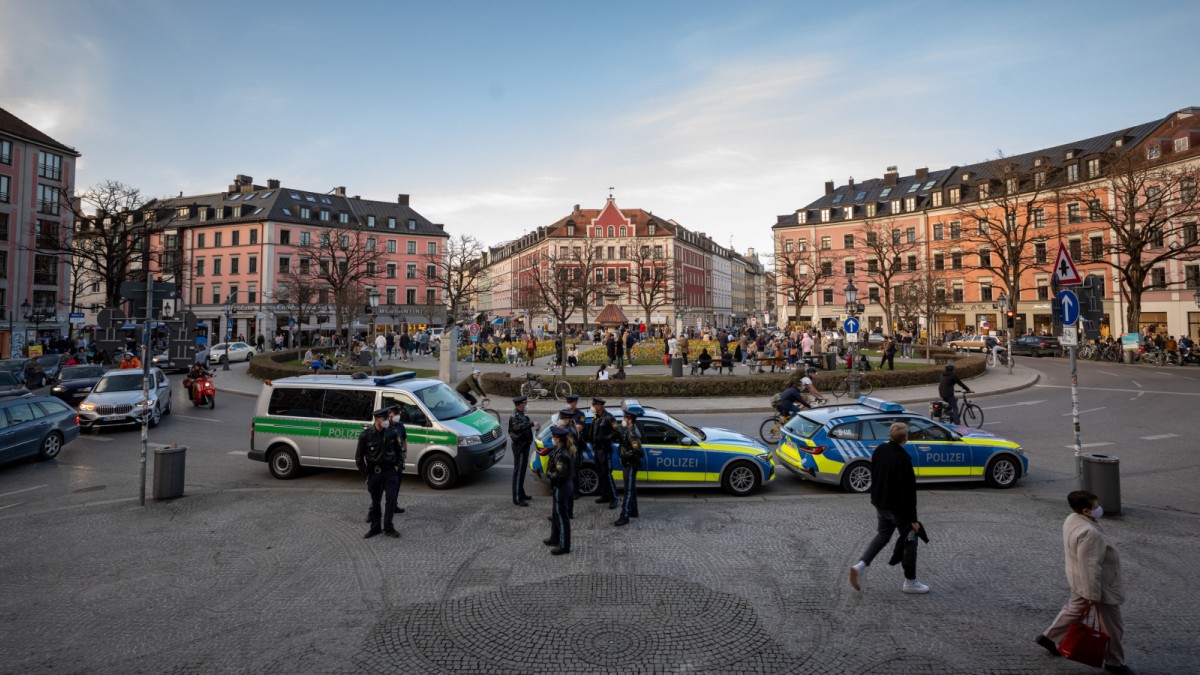The allegations are tough: “Local democracy is trampled if city councilors are further hindered in the exercise of their mandate,” says Stefan Jagel (left). His city council colleague Jörg Hoffmann (FDP) points out that many people currently fear that democracy will be damaged by Corona: “The mayor and the city council majority are doing everything to make this fear come true.” And Tobias Ruff (ÖDP) railed: “The current backroom policy is further damaging the already ailing trust in public institutions.” They all demand a “processing and clarification” of how long the mayor and the government factions still wanted to “rule through”.
The three small opposition factions in the city council, Die Linke / Die Party, FDP / Bayernpartei and ÖDP / Free Voters, have come together to vent their displeasure. The background to this is the decision of the city leaders to partially cancel the coming committee meetings and to postpone the topics to the next general assembly on May 5th. For example, the education committee did not take place on Wednesday. The economic committee next Tuesday will also be canceled. The news reached the city council on Tuesday by phone – there was no official message from Lord Mayor Dieter Reiter (SPD) and the green-red government, according to a message from the three opposition factions on Wednesday. They agree: “For a year now, local democracy has been taking place with the handbrake on, at least”. This is “no longer acceptable”.
Linken-Fraktionsche Jagel cites the alcohol ban on Gärtnerplatz and Wedekindplatz, which will apply from Friday, as another example of the “undermining of democracy”. Legally it is clear that the mayor and the crisis team can decide that, but at least the council of elders should have been involved. Last Thursday at the city council’s Corona round table, no sentence was yet dropped on a possible alcohol ban.
OB Reiter defends the approach. He said that “several parliamentary groups” asked him to examine against the background of increasing numbers of infections whether the duration of the next committee meetings could be shortened or whether these could be canceled entirely if there were no urgent agenda items to deal with. Other topics could be postponed to the mandatory assembly. “I have therefore asked the units to decide on their own responsibility whether their committees should take place on a reduced scale,” said Reiter. He considers this appropriate in view of the current development.
There was a great desire to react “ad hoc” to the increasing number of infections and to reduce dates when many people meet, says the Second Mayoress Katrin Habenschaden (Greens). For the year of meetings to go well, it is better if the committees take place and everyone can deal with the topics as best as possible. She still thinks the procedure is correct and points out that the culture committee will take place this Thursday because its agenda is well filled. The municipal committee is also taking place, as is the health committee next week.
SPD parliamentary group leader Christian Müller does not want to know anything about the undermining of democracy. “It’s just like that this month. The world won’t end there.” If one or the other session is canceled, a longer one can be held for it in the next month. Dominik Krause (Greens) believes that a strategy with rapid tests should enable meetings in the future.
And Manuel Pretzl (CSU) the criticism of his opposition colleagues goes too far. In principle, it should be possible to hold debates in committees, and in principle he is also concerned that a lot will be decided in the back rooms of the administration. But one has to differentiate, “some committees have little or nothing on the agenda”. At least for the next General Assembly on May 5th, his group has a clear stance: The CSU will appear in full strength. Recently, some of the meetings had taken place with half the cast.
The council of elders will assess the current situation on April 30th. Then it is decided in which form the general assembly will take place. “It is absurd, also for infectiological reasons, to want to cancel committees and to drag out the full assembly of the city council with all the items on the agenda,” says Stefan Jagel. “Better to have shorter committees and a technical discussion than an eternally long plenary meeting.”
The city council itself decided at the beginning of March that meetings can also be held differently, namely partially digitally. The rules of procedure are to be adapted in such a way that it is also possible to participate in meetings by means of “sound-image transmission”. The Free State created the legal prerequisites for this with a change in the municipal code. City council members could then choose to attend in person or from the screen. The IT department has been commissioned to develop a concept for these hybrid sessions. However, the technical implementation is not trivial, says a spokeswoman for the OB; In addition, the legal department of the board of directors must ensure that everything is legally watertight. And then the subject has to be taken to the city council again.
– .


